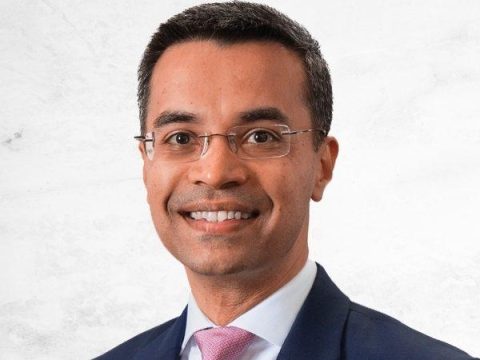In May 2023, after an industry-wide survey on money laundering and CFT-related controls, MAS issued a paper that sets out their key observations and highlights the regulator’s supervisory expectations as to the controls FIs should adopt.
As a global financial and transport hub, Singapore faces the risk of illicit financing and money laundering (ML) of funds and assets, including virtual assets, to support terrorism or financing of terrorism (FT) activities. The Monetary Authority of Singapore (MAS) asserts that financial institutions (FIs) should be vigilant of all anti-money laundering (AML) or FT risks by advocating and implementing robust controls at all stages of the customer’s life cycle – from onboarding and ongoing monitoring to client closure.
As such, MAS recently conducted an industry-wide survey of ML/CFT-related controls and followed up with a series of thematic reviews to assess FIs’ FT risk understanding to examine the effectiveness of their CFT-related controls. In May 2023, MAS issued a paper1 elaborating on their key observations and highlighting the regulator’s supervisory expectations regarding the controls FIs should implement.
MAS’ expectations
MAS expects that FIs should ensure that their AML/CFT frameworks and processes are in compliance with the Terrorism Suppression (Suppression of Financing) Act (TSOF), the Corruption, Drug Trafficking and Other Serious Crimes (Confiscation of Benefits) Act (CDSA), and other MAS rules.
Apart from this, MAS also identified three other expectations:
- FIs should be aware of the external FT risk environment, including high-risk geographies, new-age typologies, and payment methods used.
- FIs should implement adequate controls to mitigate FT risks by measuring the spread of FT risk exposure, size, nature, and complexity of the business model. FIs are also advised to focus on emerging typologies such as the ones in virtual assets payment so that the new-era threats can be screened successfully.
- FIs should actively subscribe to the MAS website to ensure that they receive timely alerts regarding any updates or changes to the lists of the United Nations (UN)-designated individuals and entities. This will allow FIs to promptly identify and address any potential FT risks associated with these designated parties.
Identified steps to improve internal controls
The regulator has identified the below steps for FIs to improve internal controls:

Screening plays a crucial role in preventing and identifying ML/FT threats, and the screening tools used by FIs must adhere to the requirements outlined in relevant legislation. The effectiveness of the screening process relies on robust and comprehensive screening logic. Any weaknesses or vulnerabilities in the screening logic can allow FT threats to slip through undetected, potentially impacting the overall functioning of the FI. Therefore, FIs must ensure that their screening tools and processes are designed and implemented with a strong focus on accuracy, reliability, and compliance.

MAS emphasises the importance of leveraging multiple data sources, including adverse news and reports, transaction monitoring, customer due diligence, and data from law enforcement agencies, to obtain a comprehensive and holistic understanding of the risks involved. The integration of disparate data sources to support the analysis of behavioural patterns enables both the better assessment of risk as well as a level of predictive analytics. MAS also advises the utilisation of Network Link Analysis (NLA) and targeted geographical tracking to enhance the monitoring of fund movement.

FI staff should maintain awareness and remain vigilant regarding the risks associated with ML and FT, including understanding different typologies. It is crucial to establish effective senior management oversight and control mechanisms to mitigate these risk exposures. This involves implementing clear channels for escalation and assigning control owners for internal control points. It is also important to take proactive measures to implement appropriate risk mitigation actions, such as the blocking and freezing of accounts when necessary.

Timely communication of suspicious transaction reporting (STRs) establishes proper communication line with law enforcement agencies. FIs should regularly improve their internal controls based on the insights gained from post-mortem reviews of FT-related cases and STRs. This continuous effort aims to enhance FIs ability to detect potential FTrisks effectively. Foster a culture of continuous improvement and leveraging advanced technologies can further enhance monitoring and detection. Overall, the ongoing enhancement of controls helps FIs better manage and mitigate FT risk concerns.
The above steps identified by MAS will help improve detection, enhance controls, and build a roadmap towards better collaboration with law enforcement agencies.
Synpulse’s recommendations
- Map your AML/CFT procedures and identify the control nodes. Adequacy of such control should be analysed, and control gaps should be identified. Board and senior management (BSM) oversight in controls is ensured by assigning equitable owners. Control gaps identified will be filled to create a strong control framework that accommodates all levels of defence. A regular sampling of client particulars to test the efficacy of AML/CFT control points is also recommended.
- FIs should continue to implement new international typologies and make sure that they are implemented in the screening systems.
- Making an investment in the implementation of a NLA-based system to detect hidden connections among clients and their transactions is highly recommended. Data analytics, machine learning and, and artificial intelligence should be used to derive better results in transaction monitoring, screening, and risk analysis. Traditional use of single data sources for analysis should be avoided and multiple linked data sources with entity resolution at the core should be considered to derive better data maps.
1 MAS. Strengthening Financial Institutions' (FI) Countering the Financing of Terrrorism (CFT) Controls. 26 May 2023


